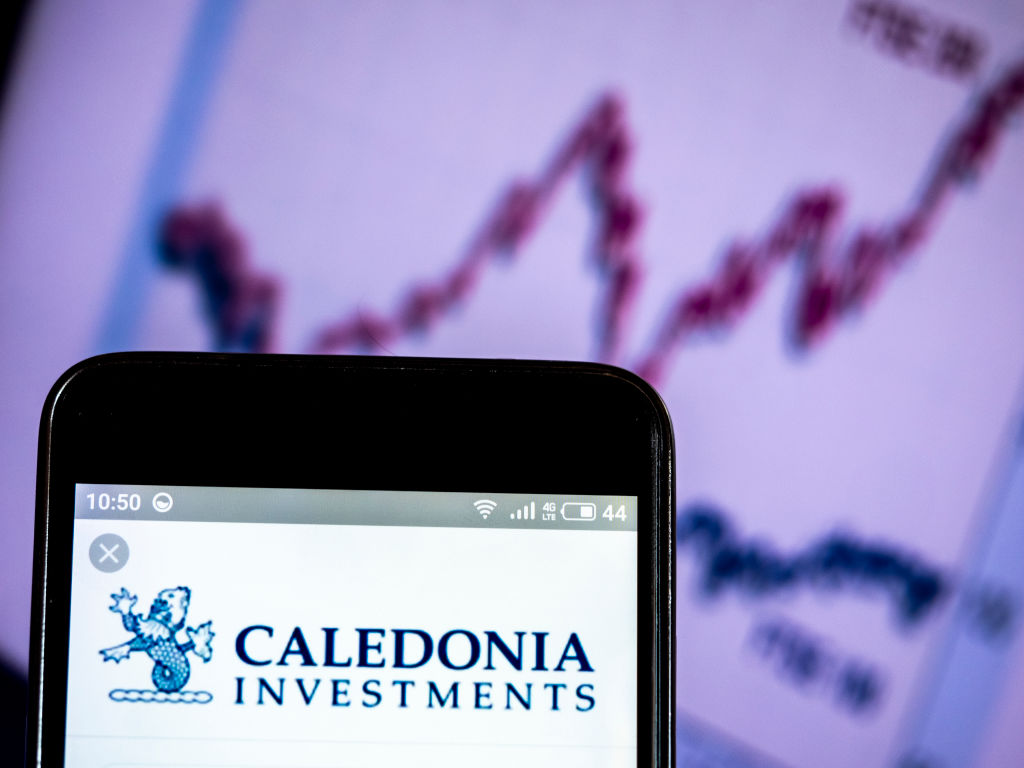Caledonia Investments tackles its discount
Family-controlled trust Caledonia Investments has launched share buybacks and is proposing a stock split


Get the latest financial news, insights and expert analysis from our award-winning MoneyWeek team, to help you understand what really matters when it comes to your finances.
You are now subscribed
Your newsletter sign-up was successful
Want to add more newsletters?

Twice daily
MoneyWeek
Get the latest financial news, insights and expert analysis from our award-winning MoneyWeek team, to help you understand what really matters when it comes to your finances.

Four times a week
Look After My Bills
Sign up to our free money-saving newsletter, filled with the latest news and expert advice to help you find the best tips and deals for managing your bills. Start saving today!
Caledonia Investments (LSE: CLDN) is one of the few remaining investment trusts with a significant founding family shareholding. The £2 billion trust is 48% owned by the Cayzer family, which was one of the most powerful shipping dynasties in the world in the late 1800s. Today, it looks after £2.9 billion of assets, all managed in-house, which are split across three pools of roughly equal size: quoted equity, private equity and direct private-company holdings.
Caledonia has been part of the MoneyWeek investment trust portfolio for many years. We like its diverse approach and its aim of earning solid long-term returns of 3%-6% above inflation, while managing risk during periods of uncertainty and instability.
Caledonia's diverse approach
The private capital part of the portfolio is focused on high-quality, UK mid-market companies. The holdings comprise eight companies, with five investments representing over 90% of the pool’s net asset value (NAV). The largest is Stonehage Fleming, an international multi-family office, whose valuation was marked up by 32% during the year. Caledonia targets returns of 14% per year from this section of its portfolio.
MoneyWeek
Subscribe to MoneyWeek today and get your first six magazine issues absolutely FREE

Sign up to Money Morning
Don't miss the latest investment and personal finances news, market analysis, plus money-saving tips with our free twice-daily newsletter
Don't miss the latest investment and personal finances news, market analysis, plus money-saving tips with our free twice-daily newsletter
The funds portfolio is invested in specialist private-equity and venture-capital funds. These are split between North American mid-market companies (63%) and Asian growth companies (37%). The target here is 12.5% per year.
Finally, direct equities comprise 18 holdings split across two global income and capital growth strategies, with target returns of 7% per year and 10% per year, respectively. Holdings range from Chinese e-commerce and technology group Alibaba to UK kitchens supplier Howdens.
Caledonia has delivered NAV total returns of 9% per year over the last ten years to 31 March, with private capital achieving 12.4%, funds achieving 13.3% and direct equities 8.4%. This compares with 6.2% for the FTSE All-Share index and is right at the top of its target of inflation plus 3%-6%.
The past year has not been so strong. Over the year to 31 March, the NAV total return was 3.3%, compared with 10.5% for the FTSE All-Share. Still, all three pools generated positive performance: quoted equities achieved 4.7% (despite a 7.3% decline during the market volatility in March), private capital returned 3.7%, and funds returned 2.2%. The long-term record is solid, and so this is no cause for concern.
Improving liquidity
One of the significant issues that has always weighed on the trust is a wide discount to NAV, which over the past year has ranged between 30% and 40% – one of the worst in the sector.
The discount has widened in recent years, but even before that, it averaged around 20%.
Historically, the controlling stakes owned by members of the large Cayzer family has been blamed for the wide discount and lack of liquidity in the shares. However, over the past 12 months, the company has tried to change this.
In addition to maintaining a policy of paying annual dividends that increase by inflation or more over the longer term (73.6p per share last year, for a yield of 1.9%), Caledonia has launched a share buyback scheme. During the last financial year, it repurchased 1.8 million shares, or 3.2% of its shares, for £63.8 million. A further 247,000 were bought back since 31 March, at a cost of £9 million. In addition, the split between final and interim dividends will be made more equal to provide a more even income stream.
The board has also proposed a 10:1 stock split. Increasing the number of shares outstanding and reducing the price should enhance liquidity, making it easier for investors to buy and sell shares. In theory, this could increase the appeal of the stock and open it to a wider audience.
Ultimately, a stock split is a cosmetic change in most respects. However, taken with other actions, it signifies that Caledonia is looking to reduce the discount. That could be the catalyst the market needs to buy back into the trust.
This article was first published in MoneyWeek's magazine. Enjoy exclusive early access to news, opinion and analysis from our team of financial experts with a MoneyWeek subscription.
Get the latest financial news, insights and expert analysis from our award-winning MoneyWeek team, to help you understand what really matters when it comes to your finances.

Rupert is the former deputy digital editor of MoneyWeek. He's an active investor and has always been fascinated by the world of business and investing. His style has been heavily influenced by US investors Warren Buffett and Philip Carret. He is always looking for high-quality growth opportunities trading at a reasonable price, preferring cash generative businesses with strong balance sheets over blue-sky growth stocks.
Rupert has written for many UK and international publications including the Motley Fool, Gurufocus and ValueWalk, aimed at a range of readers; from the first timers to experienced high-net-worth individuals. Rupert has also founded and managed several businesses, including the New York-based hedge fund newsletter, Hidden Value Stocks. He has written over 20 ebooks and appeared as an expert commentator on the BBC World Service.
-
 Can US small caps survive the software selloff?
Can US small caps survive the software selloff?US stocks have made their worst start to a year since 1995 relative to a global benchmark. But experts think some sectors of the market are still worth buying.
-
 Review: Eliamos Villas Hotel & Spa – revel in the quiet madness of Kefalonia
Review: Eliamos Villas Hotel & Spa – revel in the quiet madness of KefaloniaTravel Eliamos Villas Hotel & Spa on the Greek island of Kefalonia is a restful sanctuary for the mind, body and soul
-
 Should investors join the rush for venture-capital trusts?
Should investors join the rush for venture-capital trusts?Opinion Investors hoping to buy into venture-capital trusts before the end of the tax year may need to move quickly, says David Prosser
-
 Barings Emerging Europe trust bounces back from Russia woes
Barings Emerging Europe trust bounces back from Russia woesBarings Emerging Europe trust has added the Middle East and Africa to its mandate, delivering a strong recovery, says Max King
-
 Saba Capital: the hedge fund doing wonders for shareholder democracy
Saba Capital: the hedge fund doing wonders for shareholder democracyActivist hedge fund Saba Capital isn’t popular, but it has ignited a new age of shareholder engagement, says Rupert Hargreaves
-
 Exciting opportunities in biotech
Exciting opportunities in biotechBiotech firms should profit from the ‘patent cliff’, which will force big pharmaceutical companies to innovate or make acquisitions
-
 Three funds to buy for capital growth and global income
Three funds to buy for capital growth and global incomeOpinion Three investment trusts with potential for capital growth, selected by Adam Norris, co-portfolio manager of the CT Global Managed Portfolio Trust
-
 The MoneyWeek investment trust portfolio – early 2026 update
The MoneyWeek investment trust portfolio – early 2026 updateThe MoneyWeek investment trust portfolio had a solid year in 2025. Scottish Mortgage and Law Debenture were the star performers, with very different strategies
-
 Polar Capital: a cheap, leveraged play on technology
Polar Capital: a cheap, leveraged play on technologyPolar Capital has carved out a niche in fund management and is reaping the benefits
-
 'Investors should keep putting their trust in investment trusts'
'Investors should keep putting their trust in investment trusts'Interview Peter Walls, manager of the Unicorn Mastertrust fund, analyses investment trusts in a conversation with Andrew Van Sickle